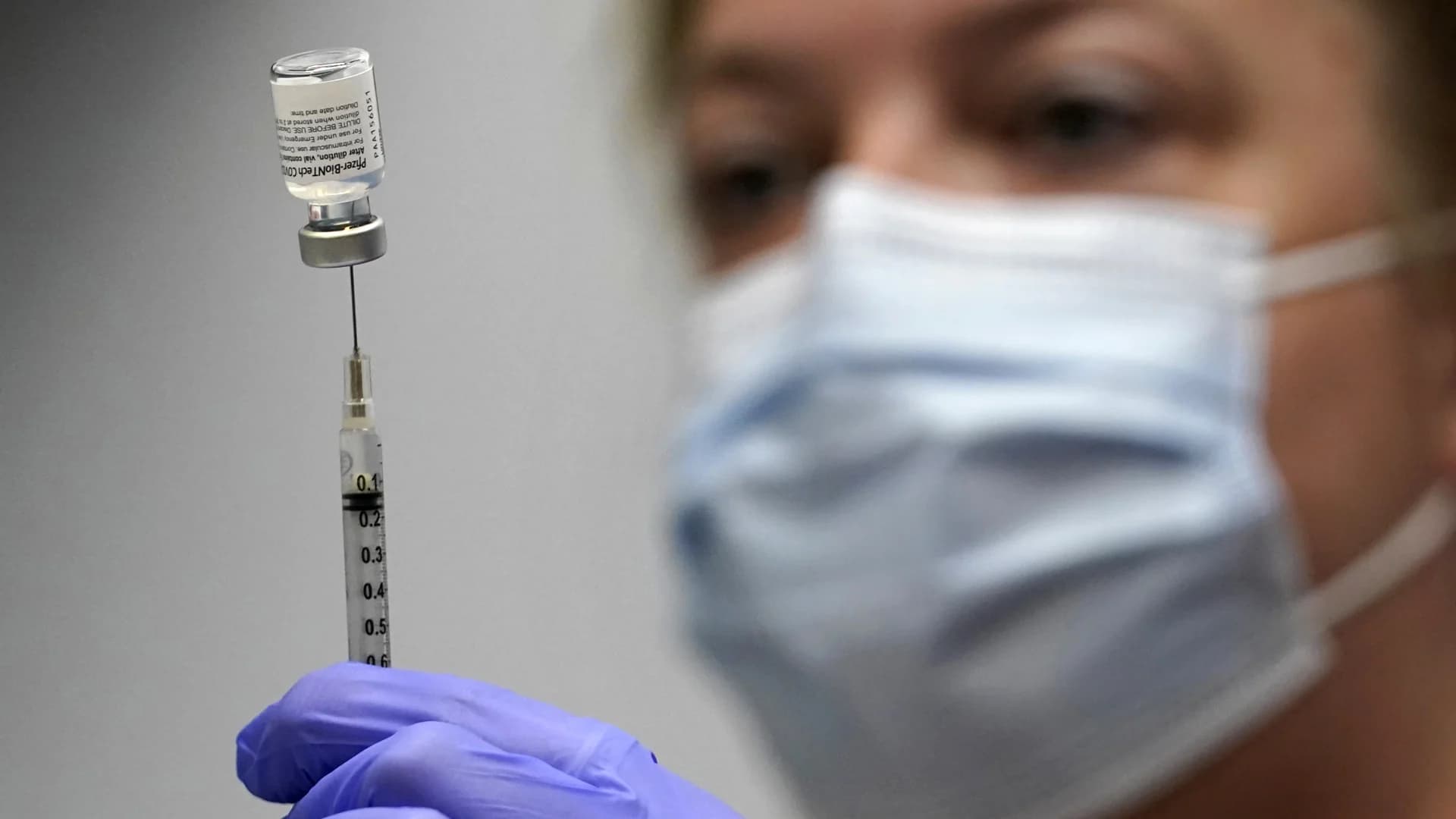More Stories

President Joe Biden is set to announce that the United States is doubling its purchase of Pfizer's COVID-19 shots to share with the world to 1 billion doses as he embraces the goal of vaccinating 70% of the global population within the next year.
The stepped-up U.S. commitment is to be the cornerstone of the global vaccination summit Biden is convening virtually Wednesday on the sidelines of the U.N. General Assembly, where he plans to push well-off nations to do more to get the coronavirus under control.
World leaders, aid groups and global health organizations are growing increasingly vocal about the slow pace of global vaccinations and the inequity of access to shots between residents of wealthier and poorer nations.
The U.S. purchase, according to two senior Biden administration officials who spoke on the condition of anonymity to preview Biden’s remarks, will bring the total U.S. vaccination commitment to more than 1.1 billion doses through 2022. At least 160 million shots supplied by the U.S. have been distributed to more than 100 countries, representing more donations than the rest of the world combined.
The latest purchase reflects only a fraction of what will be necessary to meet a goal of vaccinating 70% of the global population - and 70% of the citizens of each nation - by next September’s U.N. meeting. It's a target pushed by global aid groups that Biden will throw his weight behind.
The White House said Biden will use the summit to press other countries to “commit to a higher level of ambition” in their vaccine sharing plans, including specific challenges for them to meet. The officials said the White House will publicly release the targets for well-off nations and nonprofits after the summit concludes.
The American response has come under criticism for being too modest, particularly as the administration advocates for providing booster shots to tens of millions of Americans before vulnerable people in poorer nations have received even a first dose.
“We have observed failures of multilateralism to respond in an equitable, coordinated way to the most acute moments. The existing gaps between nations with regard to the vaccination process are unheard of,” Colombian President Iván Duque said Tuesday at the United Nations.
More than 5.9 billion COVID-19 doses have been administered globally over the past year, representing about 43% of the global population. But there are vast disparities in distribution, with many lower-income nations struggling to vaccinate even the most vulnerable share of their populations, and some yet to exceed 2% to 3% vaccination rates.
In remarks at the U.N., Biden took credit on Tuesday for sharing more than 160 million COVID-19 vaccine doses with other countries, including 130 million surplus doses and the first installments of more than 500 million shots the U.S. is purchasing for the rest of the world.
Other leaders made clear in advance it was not enough.
Chilean President Sebastian Piñera said the “triumph” of speedy vaccine development was offset by political “failure” that produced inequitable distribution. “In science, cooperation prevailed; in politics, individualism. In science, shared information reigned; in politics, reserve. In science, teamwork predominated; in politics, isolated effort,” Piñera said.
The World Health Organization says only 15% of promised donations of vaccines - from rich countries that have access to large quantities of them - have been delivered. The U.N. health agency has said it wants countries to fulfill their dose-sharing pledges “immediately” and make shots available for programs that benefit poor countries and Africa in particular.
COVAX, the U.N.-backed program to ship vaccines to all countries has struggled with production issues, supply shortages and a near-cornering of the market for vaccines by wealthy nations.
The WHO has urged companies that produce vaccines to prioritize COVAX and make public their supply schedules. It also has appealed to wealthy countries to avoid broad rollouts of booster shots so doses can be made available to health care workers and vulnerable people in the developing world. Such calls have largely gone ignored.
COVAX has missed nearly all of its vaccine-sharing targets. Its managers also have lowered their ambitions to ship vaccines by the end of this year, from an original target of some 2 billion doses worldwide to hopes for 1.4 billion now. Even that mark could be missed.
As of Tuesday, COVAX had shipped more than 296 million doses to 141 countries.
The 70% global target is ambitious, not least because of the U.S. experience.
Biden had set a goal of vaccinating 70% of the U.S. adult population by July 4, but persistent vaccine hesitance contributed to the nation not meeting that target until a month later. Nearly 64% of the entire U.S. population has received at least one dose and less than 55% is fully vaccinated, according to data from the Centers for Disease Control and Prevention.
U.S. officials hope to increase those figures in the coming months, both through encouraging the use of vaccination mandates and by vaccinating children once regulators clear the shots for the under-12 population.
Aid groups have warned that the persistent inequities risk extending the global pandemic, and that could lead to new and more dangerous variants. The delta variant raging across the U.S. has proved to be more transmissible than the original strain, though the existing vaccines have been effective at preventing nearly all serious illness and death.
More from News 12
1:57

Jury selection begins in trial of man accused in beating death of 3-year-old Orange County boy
1:28

More than a dozen people displaced after fire in Haverstraw multifamily home
1:42

Mount Vernon fire victims may qualify for federal disaster loans
0:26

Hundreds of toys delivered to pediatric patients for Three Kings Day
1:50

Temperatures are on the other side of average; more rain is expected to finish the week
0:37
